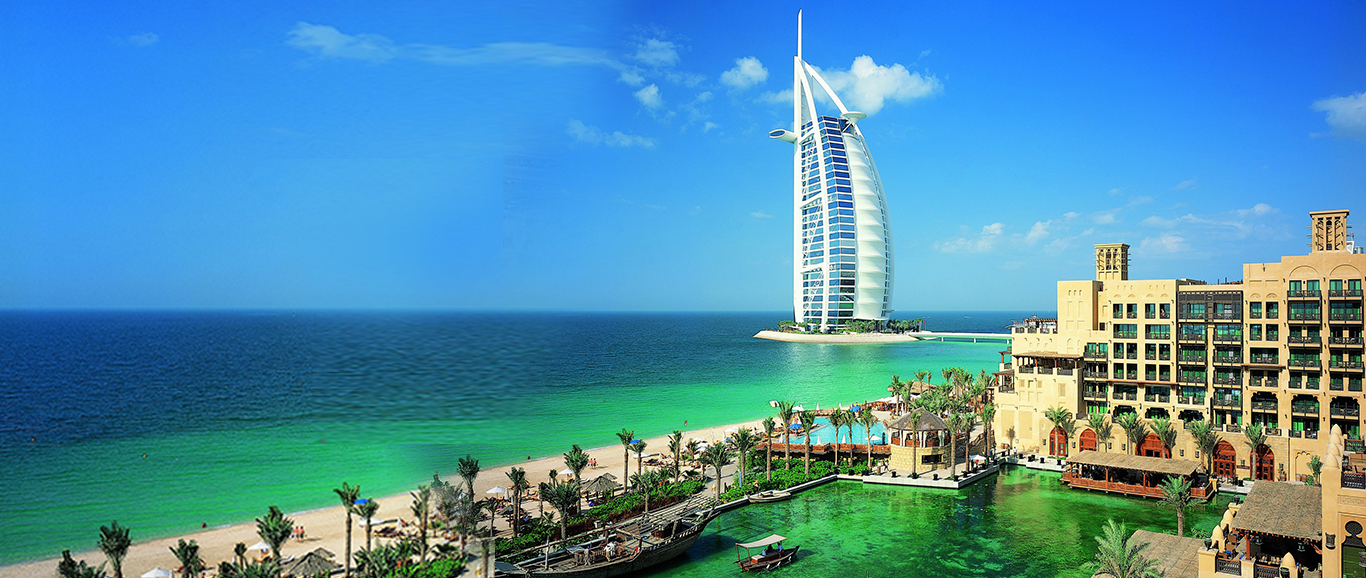




Setting up businesses in Dubai
In the UAE, economic activity is regulated by individual emirates as well as the Federal Government. In Dubai, the authorities have deliberately sought to create an environment which is well ordered without being unduly restrictive. As a result, Dubai offers businessmen operating conditions that are among the most liberal and attractive in the region.
There are many options open to international companies seeking to establish a business relationship with Dubai. Apart from forming a trading relationship, for many companies there are distinct advantages in being on-the-spot to research market prospects, make contacts, liaise with customers, and see through the details of any transactions and orders secured.
Having a presence can provide considerable business advantages in the Middle East. Businessmen in the region prefer to deal with someone they know and trust and personal relationships are much more important in doing business in the Arab world than they are in Western Europe, America or Far East. Also, the buying patterns of some countries served by Dubai tend to be unpredictable, creating a need for first class market intelligence and information.
Licensing
The basic requirement for all business activity in Dubai is one of the following three categories of licenses:
Commercial licenses covering all kinds of trading activity; Professional licenses covering professions, services, craftsmen and artisans; Industrial licenses for establishing industrial or manufacturing activity. These licenses are all issued by the Dubai Economic Department. However, licenses for some categories of business require approval from certain ministries and other authorities: for example, banks and financial institutions from the Central Bank of the UAE; insurance companies and related agencies from the Ministry of Economy and Commerce; manufacturing from the Ministry of Finance and Industry; and pharmaceutical and medical products from the Ministry of Health.
More detailed procedures apply to businesses engaged in oil or gas production and related industries.
Practicing some trade activities (e.g. jewelers and insurance) requires the submission of a financial guarantee issued by a bank operating in Dubai.
In general, all commercial and industrial businesses in Dubai should be registered with the Dubai Chamber of Commerce and Industry.
Ownership Requirements
Fifty-one per cent participation by UAE nationals is the general requirement for all UAE established companies except:
In the past, each emirate followed its own procedures governing the operations of foreign business interests. In practice, however, Dubai and the other emirates followed the same general system, whereby foreign companies operated in one of three ways: with a local sponsor, through a partnership with a UAE national or company, or through a private limited company or public shareholding company incorporated by Ruler's decree.
Since 1984, steps have been taken to introduce a codified companies law applicable throughout the UAE. Federal Law No. 8 of 1984, as amended by Federal Law No. 13 of 1988 - the "Commercial Companies Law" - and its by-laws have been issued. In broad terms the provisions of the Law are as follows: The Federal Law stipulates a total local equity of not less than 51% in any commercial company and defines seven categories of business organization which can be established in the UAE. It sets out the requirements in terms of shareholders, directors, minimum capital levels and incorporation procedures. It further lays down provisions governing conversion, merger and dissolution of companies.
The seven categories of business organization defined by the law are:
Partnership companies are limited to UAE nationals only. The Dubai government does not presently encourage the establishment of partnership-en-commendams and share partnership companies.
Joint Venture Companies
A joint venture is a contractual agreement between a foreign party and a local party licensed to engage in the desired activity. The local equity participation in the joint venture must be at least 51%, but the profit and loss distribution can be prescribed. There is no need to license the joint venture or publish the agreement. The foreign partner deals with third parties under the name of the local partner who - unless the agreement is publicized - bears all liability.
In practice, joint ventures are seen as offering a suitable structure for companies working together on specific projects.
Public and Private Shareholding Companies
The Law stipulates that companies engaging in banking, insurance, or financial activities should be run as public shareholding companies. Foreign banks, insurance and financial companies, however, can establish a presence in Dubai by opening a branch or representative office.
Shareholding companies are suitable primarily for large projects or operations, since the minimum capital required is Dh. 10 million (US$ 2.725 million) for a public company, and Dh. 2 million (US$ 0.545 million) for a private shareholding company. The chairman and a majority of directors must be UAE nationals and there is less flexibility of profit distribution than is permissible in the case of limited liability companies.
Limited Liability Companies
A limited liability company can be formed by a minimum of two and a maximum of 50 persons whose liability is limited to their shares in the company's capital. Such companies are recognized as offering a suitable structure for organizations interested in developing a long term relationship in the local market.
In Dubai, the minimum capital is currently Dh. 300,000 (US$ 82,000), contributed in cash or in kind. While foreign equity in the company may not exceed 49%, profit and loss distribution can be prescribed. Responsibility for the management of a limited liability company can be vested in the foreign or national partners or a third party.
The following steps are required in establishing a limited liability company in Dubai.
Select a commercial name for the company and have it approved by the Licensing Department of the Economic Department;
Draw up the company's Memorandum of Association and have it notarized by a Notary Public in the Dubai Courts;
Seek approval from the Economic Department and apply for entry in the Commercial Register;
Once approval is granted, the company will be entered in the Commercial Register and have its Memorandum of Association published in the Ministry of Economy and Commerce's Bulletin. The license will then be issued by the Economic Department;
The company should then be registered with the Dubai Chamber of Commerce and Industry.
Branches and Representative Offices of Foreign Commercial Companies
The Commercial Companies Law also covers the formation and regulation of branches and representative offices of foreign companies in the UAE and stipulates that they may be 100% foreign owned, provided a local agent is appointed.
Only UAE nationals or companies 100% owned by UAE nationals may be appointed as local agents (which should not be confused with the term "commercial agent"). Local agents -- also sometimes referred to as sponsors -- are not involved in the operations of the company but assist in obtaining visas, labour cards, etc and are paid a lump sum and/or a percentage of profits or turnover. In general, branches and offices of foreign commercial companies are not licensed to engage in importing activity except for re-export or in the case of products of a highly technical nature.
To establish a branch or representative office in Dubai, a foreign commercial company should proceed as follows:
Apply for a license from the Ministry of Economy and Commerce, submitting an agency agreement with a UAE national or 100% UAE owned company. Before issuing the license, the Ministry will: forward the application to the Economic Department to obtain the approval of the Dubai government;
forward the application specifying the activity that the office or branch will be authorized to undertake in the UAE, to the Federal Foreign Companies Committee for approval;
Once this has been done, the Ministry of Economy and Commerce will issue the required Ministerial license specifying the activity to be practiced by the foreign company;
The branch or office should be entered in the Economic Department's Commercial Register, and the required license will be issued;
The branch or office should also be entered in the Foreign Companies Register of the Ministry of Economy and Commerce;
Finally the branch or office should be registered with the Dubai Chamber of Commerce and Industry.
Branches and Representative Offices of Foreign Professional Companies
Branches and representative offices of foreign professional firms may be 100% foreign owned provided UAE nationals or 100% UAE owned companies are appointed as local agents. Such agents are not involved in the operations of the firm but assist in obtaining visas, labour cards etc and are paid a lump sum as remuneration. The Economic Department is the authority in charge of licensing such branches or representational offices.
Professional Firms
In setting up a professional firm, 100% foreign ownership, sole proprietorships or civil companies are permitted. Such firms may engage in professional or artisan activities but the number of staff members that may be employed is limited. A UAE national must be appointed as local service agent, but he has no direct involvement in the business and is paid a lump sum and/or percentage of profits or turnover. The role of the local service agent is to assist in obtaining licenses, visas, labour cards, etc.
Taxation
There is no corporate tax in Dubai. The only exceptions to this are oil producing companies and branches of foreign banks. Likewise, there are no personal taxes. Direct taxation is against the traditions of the UAE and it is highly unlikely that it will be introduced in the near future.
Or leave a call back request and we will getback to you as soon as posible